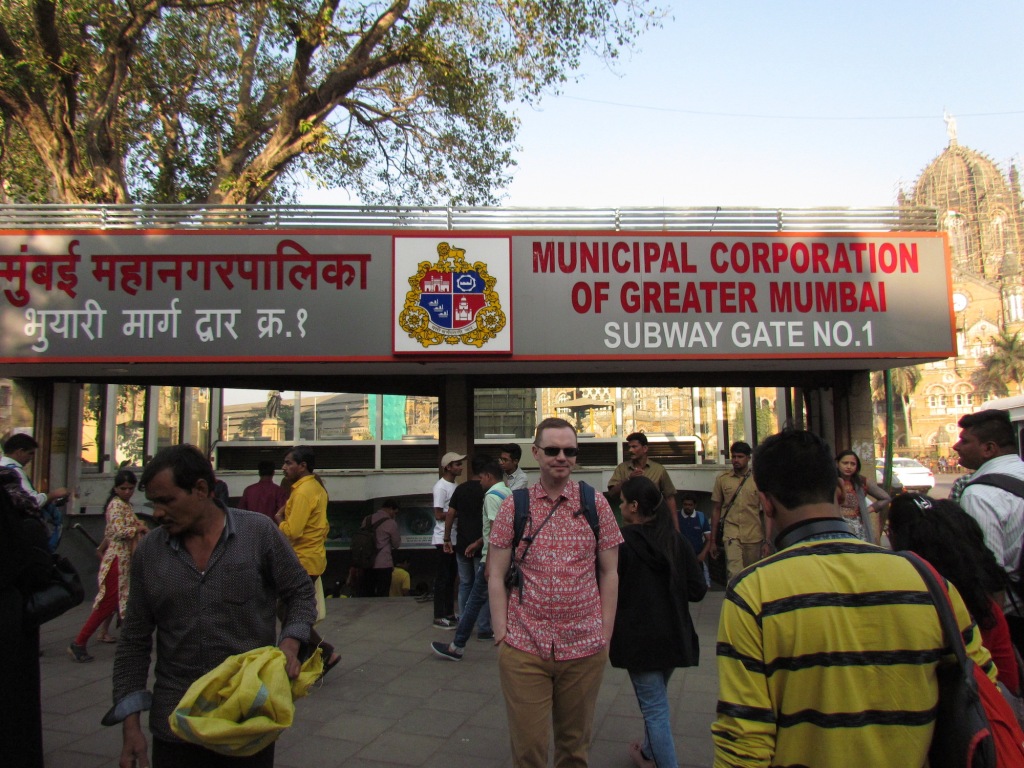
It was 1993, the beginning of the Clinton years. The Wall had come down and Yeltsin had gone up onto the tank. No longer impeded by a curtain of iron, there were now fifteen new “FSU” states strung along the old Silk Road joining China and Europe. It seemed more open than any time in recent memory. So two buddies from Queens New York took a chance. Inspired by The Travels of Marco Polo, the famous 13th century travelogue, Denis Belliveau and Francis O’Donnell spent the next two years going 25,000 miles overland in an attempt to retrace the steps of Marco Polo from Venice to China and back. Their adventure is covered in the 2008 documentary In the Footsteps of Marco Polo. I watched this documentary last weekend on the recommendation of an old friend (who I actually travelled to Chinese Turkestan with many years ago) and had a wide grin on my face the whole time. I thought to myself, “I would love to do this!”
Not everyone would have that reaction. Adventure travel inherently involves some sort of danger or risk — it requires the traveller to step outside of her comfort zone. Whether climbing remote mountains, or paddling jungle rivers, adventure travel is about striving for a rush. I am not really the physical type, so I don’t chase the “climber’s high.” Rather, my particular fascination is with other cultures. There is something exciting about being in an unfamiliar surroundings where even the most basic daily problems are a challenge to solve. I realized I get a rush from the feelings of culture shock. Rather than the extreme mountaineer’s “climber’s high” I crave a “culture high.”
The two main characters of In the Footsteps are total characters who do some crazy things and meet some very crazy people along the way. The show is a whirlwind of locales, but I felt gratified to recognize a few things I have seen with my own eyes: the animal market in Kashgar, the Taj hotel in Mumbai, the prodigious peaks of the Pamir plateau, and anti-US demonstrations in Iran.

Spice market in Kashgar 
Chad at statue of Mao Tse Tung in Kashgar 
Kyrgyz man in Tashkurgan 
Pamir Mountains 
Chad at Tomb of Cyrus the Great, Iran 
Chad comes out of Mumbai subway
Like most, I have slaked my thirst for adventure vicariously through reading. The classical travelogues of Marco Polo and Ibn Battuta; the imperialist adventurers of Younghusband, TE Lawrence, and Gertrude Bell — they all captured my imagination. The action-packed historical writings of Peter Hopkirk taught me the global impact of events in regions typically off the beaten track. Of course, I read Robert Kaplan religiously, and referred to multiple editions of RYP’s The World’s Most Dangerous Places while imagining impossible itineries involving insurgents or pirates.
Working on my own travelogue has me considering travel more critically, of how to do it but also how to write about it. As travel writer Meera Dattani put it recently in a piece on decolonising travel:
Not all travel is all good. We need to be measured in how we travel, how often we travel, what we leave behind, of traveling closer to home. The places we visit are not just ‘holiday destinations’—they’re home for other people; living, breathing communities.
Much of the adventure canon available in English comes from the colonial past. Even modern adventure accounts can struggle with communicating an experience in a different cultural with appropriate nuance. Moreover, there are still many hurdles to making travel more sustainable, not only in an environmental sense but also a cultural. The travel industry needs to move away from industrial-age mass tourism to providing more meaningful experiences that are not exploitative of local economies and peoples, and also facilitate ways that travellers can contribute something more to locals than mere dollars. In the article quoted above, Dattani goes on to assure us “travel can be beautifully reciprocal when it’s done right.”
So, how to do it right? We must consider the philosophy of travel and the ethics involved. The history of adventure travel may be entwined with colonialism, but it is not inherently racist. Being informed and mindful of these issues during the planning, practice, documentation, and communication of a trip gives you a good chance of avoiding the perpetuation of racist or orientalist views. Probably the biggest takeaway I got from reading about Dr Nakamura’s experience in Afghanistan was the importance of listening. It is the prerequisite of empathy. I am reminded of ubuntu philosophy and the phrase “I am because we are.” I think this is also the key to good travel and all those famous quotes about how learning about elsewhere helps you learn about yourself.
While considering these deep issues and planning for your big post-pandemic adventure, take a look at In the Footsteps of Marco Polo. Recommended! 👍
Note: This is my 600th post to this blog. I am really happy to mark it with rumination on an enduring fascination of mine. Ever since I was a little boy, I always wanted to go “over there,” but could never really figure out why. Thinking deeply about whether or not “adventure” is inherently racist, and whether I should partake, led me to uncovering my thirst for culture shock — a valuable personal insight.
Friendly aside: This is a beautifully shot short documentary featuring Tajikistan that I recommended on Twitter and my monthly newsletter. When I was up on the Pamir plateau heading to a Pakistani checkpoint many years ago, I was about 40kms from this village. The film really captures the beauty of the mountains and unique colour of the sky, while presenting a nuanced portrayal of the anomie of post-Soviet Central Asia.

